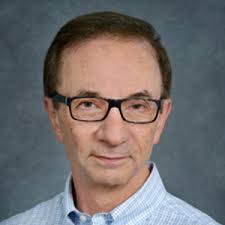 As Associate Laboratory Director (ALD) for Energy Sciences, Don DePaolo oversees the ALS, Chemical Sciences, and Materials Sciences. He’s also a UC Berkeley Professor of Geochemistry in the Department of Earth and Planetary Science. Though many ALS staff and users may not know him personally, DePaolo has been a key figure in the ALS/DOE relationship over the past few years. DePaolo will be retiring this year, but hopes to continue to work with the ALS in moving toward a facility upgrade.
As Associate Laboratory Director (ALD) for Energy Sciences, Don DePaolo oversees the ALS, Chemical Sciences, and Materials Sciences. He’s also a UC Berkeley Professor of Geochemistry in the Department of Earth and Planetary Science. Though many ALS staff and users may not know him personally, DePaolo has been a key figure in the ALS/DOE relationship over the past few years. DePaolo will be retiring this year, but hopes to continue to work with the ALS in moving toward a facility upgrade.
How did your relationship with the ALS emerge?
My involvement with the ALS started about three years ago; I was an Associate Lab Director and the ALS was moved into Energy Sciences, so it became one of my divisions. My interaction with the ALS has been almost entirely a learning experience, from understanding the actual accelerator science to the relationship with DOE.
What have been some of the most interesting aspects of your work with the ALS?
One thing I became aware of rather quickly was that facilities, like the ALS and the Molecular Foundry, are viewed and dealt with differently by the DOE than the scientific divisions. I’ve come to understand what the ALS is good at and also how the DOE views us. I have learned a lot about both accelerator science and x-ray science at the ALS and how an upgrade is necessary for U.S. science and to keep ALS as the best soft x-ray facility in the world.
What have been some of the most rewarding aspects of your work with the ALS?
One of the most rewarding parts of my job overall has been working with both the ALS staff and the DOE on developing a path forward for the ALS-U project. My job as an ALD has put me in a particularly beneficial position to help with this, and has also provided me a unique learning experience. It is exciting that we are continuing to make progress.
One aspect of my work with the ALS has been to develop an understanding of what the DOE expects of us, some of which we often don’t fully appreciate. This has involved continued discussion with DOE leadership, which has also been rewarding because it has allowed me to develop new relationships with those people, and to better understand the complicated environment in which they strive to help and develop Laboratory programs and facilities. This understanding has carried over and been critical to development of the ALS-U initiative. My role has been as a liaison to the DOE staff. I try to keep us moving at the right pace and to maintain good communication with the DOE. Seeing ALS-U listed as absolutely central for basic science at the recent Basic Energy Sciences Advisory Committee meeting was a wonderful validation of the hard work that many people at ALS have done over the past several years (see the update by Dave Robin in this issue).
What does retirement hold for you?
Because I’m also a faculty member on campus, retirement is sort of how I define it. I’ll become a professor of the graduate school after retirement and maintain my association with both my campus department – Earth and Planetary Science – and the Lab. At the Lab I’ll likely continue on for a couple years, shepherding along projects that I’ve been involved with, like ALS-U, and research projects in the Energy Geosciences Division.
I’m hoping I’ll have more time to spend on research and also just more time uncommitted. I’ll spend some of that doing what I enjoy outside of work—hiking, biking, golf – and perhaps some work on a more popular-level science book. I’d also like to devote more time to music; I used to really enjoy playing guitar.